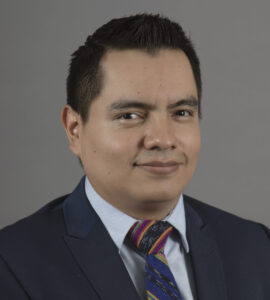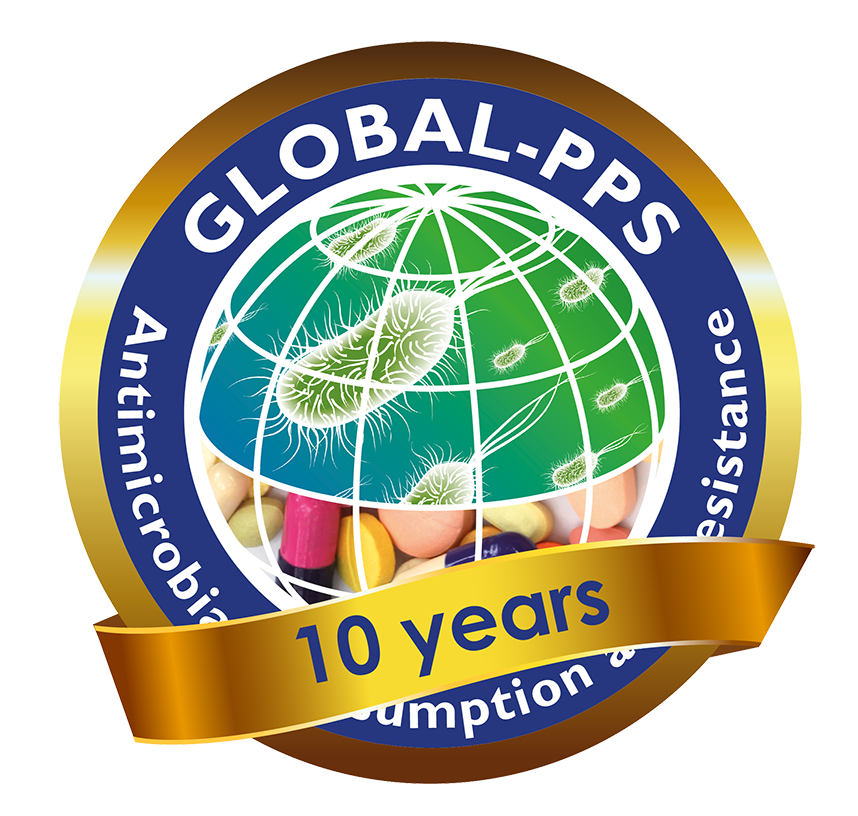A Collaborative Effort in Antimicrobial Stewardship - Interview with Dr. Herberth Maldonado
We interviewed Dr. Herberth Maldonado from Guatemala, who has made great efforts in combatting antimicrobial resistance in his country. He shares his insights and experiences with Global-PPS, what challenges he faces and his hopes for the future.
Can you please provide a brief introduction of yourself?
 Herberth Maldonado: I am a paediatric infectious disease specialist with a decade of experience. I am currently affiliated with Universidad del Valle de Guatemala and have my clinical practice at Unidad de Cirugía Cardiovascular de Guatemala, a dedicated heart surgery hospital. I developed and now oversee both the infection prevention and antimicrobial stewardship programs. Additionally, I serve as the secretary for the Guatemalan Infectious Disease Association and have taken on leadership roles in national immunization advisory groups.
Herberth Maldonado: I am a paediatric infectious disease specialist with a decade of experience. I am currently affiliated with Universidad del Valle de Guatemala and have my clinical practice at Unidad de Cirugía Cardiovascular de Guatemala, a dedicated heart surgery hospital. I developed and now oversee both the infection prevention and antimicrobial stewardship programs. Additionally, I serve as the secretary for the Guatemalan Infectious Disease Association and have taken on leadership roles in national immunization advisory groups.
Can you share how your involvement with the Global Point Prevalence Survey (Global-PPS) began?
Herberth Maldonado: My collaboration with Global-PPS started in 2019, when I applied for a grant from the International Society of Infectious Diseases supported by Pfizer. In the pursuit of implementing antimicrobial stewardship in different settings in Guatemala, I reached out to experts like Prof. Herman Goossens and Ines Pauwels. We underwent formal training with Global-PPS, conducting surveys in four institutions in 2021. While 2022 posed challenges, our experiences have been crucial in presenting data at national meetings and drafting papers highlighting antibiotic use prevalence, especially in paediatric settings.
Can you elaborate on the specific advantages Global-PPS has brought to your hospital and how you’ve utilized the results?
Herberth Maldonado: Global-PPS has been instrumental in providing evidence of antibiotic use in our hospital, especially in paediatric and neonatal settings. We’ve presented these findings at national and regional meetings and webinars during events like World Antimicrobial Awareness Week. The data has also been valuable in collaborations, for example, with the University of California in San Francisco preparing scientific manuscripts for peer-review journal submission. While it takes time, we’re determined to use this data to raise awareness about the prevalence of antibiotic use in Guatemala.
Can you shed light on the current AMR situation in Guatemala?
Herberth Maldonado: Unfortunately, the AMR situation in Guatemala is hopeless. Recent national reports evidence that reported resistance to reserve drugs, such as carbapenems, is higher than in most other Latin American countries, comparable to reports in African countries. Despite this, we lack a national plan to combat AMR, and there is limited government commitment to develop it, especially under the one health approach. However, there is hope with potential changes in the Ministry of Health authorities. Currently, public or private health services are not mandated to have programs for antimicrobial stewardship or infection prevention and control. We desperately need more initiatives and support to address this growing concern.
Considering your experience, could you share some concrete challenges you faced while implementing Global-PPS, and what improvements can be made?
Herberth Maldonado: One significant challenge is the need for a dedicated local leader to organize the survey, print forms, manage data entry, etc. The current report, though comprehensive, can be overwhelming. A more concise report or additional training on result interpretation would be beneficial. Furthermore, translating the report into Spanish would enhance its accessibility and usability for a broader audience in Latin America.
Looking ahead, what do you hope to achieve in the coming years with Global-PPS?
Herberth Maldonado: Our immediate goals include conducting a national survey with potential funding, leveraging the initiative from our medical association, and expanding the measurement into outpatient settings. Conducting a pilot project in outpatient clinics will be crucial to understanding and addressing antibiotic use beyond hospital settings. With a coordinated effort, we aim to generate valuable data and raise awareness about the pressing issue of antibiotic resistance in Guatemala.
About dr. Herberth Maldonado
 Dr. Herberth Maldonado is a paediatric infectious disease specialist and coordinator of the Infection Control and Prevention and Antimicrobial Optimization Programs at Unidad de Cirugía Cardiovascular de Guatemala. He is a researcher associated with the Center for Health Studies, Universidad del Valle de Guatemala. Dr. Maldonado’s interest and area of work lie in the clinical area and research of vaccine preventable diseases, emerging and re-emerging infectious diseases, prevention and treatment of health-care associated infection, multidrug-resistant infections, and antimicrobial stewardship program implementation. In addition, he is the Secretary of the Guatemalan Association of Infectious Diseases.
Dr. Herberth Maldonado is a paediatric infectious disease specialist and coordinator of the Infection Control and Prevention and Antimicrobial Optimization Programs at Unidad de Cirugía Cardiovascular de Guatemala. He is a researcher associated with the Center for Health Studies, Universidad del Valle de Guatemala. Dr. Maldonado’s interest and area of work lie in the clinical area and research of vaccine preventable diseases, emerging and re-emerging infectious diseases, prevention and treatment of health-care associated infection, multidrug-resistant infections, and antimicrobial stewardship program implementation. In addition, he is the Secretary of the Guatemalan Association of Infectious Diseases.
